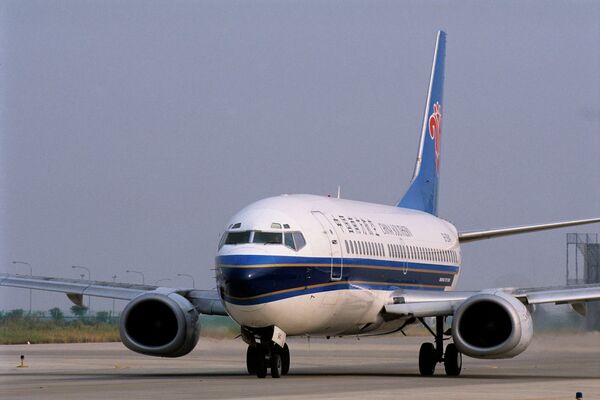MOSCOW, July 25 (RIA Novosti) - China’s airlines prepare to announce collapses in profits and dramatic losses in the wake of Chinese land forces’ military exercises, with about 26,000 flights being canceled, The Financial Times reported on Thursday.
The newspaper reported that the military exercises forced domestic airlines to cancel a quarter of all flights in eastern China for at least three weeks.
With reference to a state media, The Financial Times said the Chinese Army land forces started live-fire rocket artillery and air defense drills last week, and they are expected to last up to three months.
China’s military is known to regularly close the country’s airspace to commercial aircraft with very little warning.
“A big concern for airlines operating in China is the short notice they are given for these blackouts; there is no way they can come up with cost-effective contingency plans,” Martin Craigs, chief executive of the Pacific Asia Travel Association, was quoted as saying by The Financial Times. “The way these drills are handled is inconsistent with China’s reputation of being an efficient and decent place to do business.”
A former senior Chinese aviation official told the newspaper that the military’s control over commercial airspace was also a way of extracting money from the airlines who are ready to pay for the airspace to be opened for the commercial aircraft.
According to the newspaper, delays and cancelations of Chinese flights have already accounted for 20 percent of the global total over the past month. Since the military exercises began last week, delayed and canceled Chinese flights have accounted for more than 60 percent of the global total.
Thousands of flights have already been canceled or delayed in the past week in Chinese cities, particularly in Shanghai, Nanjing, Wuhan and Hangzhou.
China is the world’s second-largest aviation market after the United States, and its record of delays and cancelations is the worst in the world. The Financial Times refers to the Flightstats’ data, according to which in July 2013, only 18 percent of flights out of Beijing left on time, and no major airport in China was able to get more than 40 percent of its flights away as scheduled.


